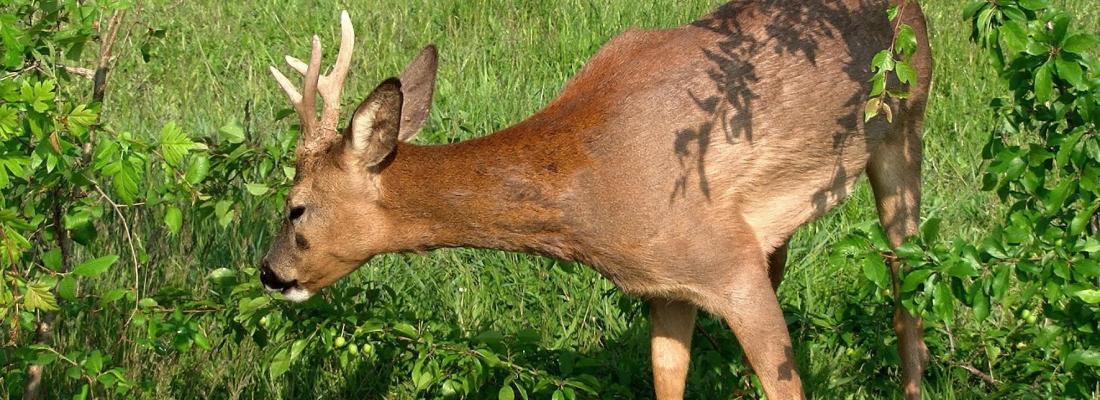Biodiversity Reading time 2 min
Wild animals under stress
Published on 03 April 2023

Stress and immune function
To better understand the adaptation of wild animals to stress induced by human activities and its consequences on their immunity, and therefore their health, scientists from CEFS laboratory conducted an experiment. The aim was to analyse the stress-immunity relationship by considering the individual behavioural profiles of 13 roe deer. These animals were subjected to an immune challenge through an anti-rabies vaccination during a capture, after which they were released in their enclosure.
For some roe deer, the average hormone level (glucocorticoids*) increased in the weeks following capture. At the same time, these individuals also showed an increase in several markers of immunity (innate and adaptive), as well as a reactive behavioural profile: low level of activity, little fear of novelty, and docile to handling. Conversely, more proactive individuals (more active, more fearful and less compliant) showed a decrease in the same immune markers and hormone levels.
In most individuals, chronic elevation of glucocorticoids due to repeated exposure to stress factors impairs immune function. In wild animals, the few available studies yielded conflicting results or no relationship, which may be masked by differences in behavioural profiles. In theory, physiological responses, such as immunity or glucocorticoid secretion, and behavioural traits (activity level, response to capture or novelty) are governed by the same principles of energy supply. They should therefore vary together and thus define stable profiles over time and across contexts specific to each individual.
Behavioural profile linked to stress response
“Our study shows a link between behavioural profile and physiological and immune response to stress factors at the individual level," says Hélène Verheyden, director of the CEFS laboratory. Our results suggest that immunity of large mammals can be influenced by glucocorticoid levels but also by their behavioural profile. This study shows the importance of considering together the variation of behavioural and physiological traits to understand stress-immunity relationships, to evaluate the consequences on health and disease circulation at the human-wildlife interface".
This work opens perspectives to integrate aspects mixing behavioural profiles and stress reaction, and to understand implications on adaptive value as well as on pathogen circulation, and thus wildlife health.
*Natural glucocorticoids, corticosterone and cortisol, are circulating hormones essential to life. They regulate intake, storage and distribution of energy in the body.
Reference :
Carbillet J, Rey B, Palme R, Monestier C, Börger L, Lavabre T, Maublanc ML, Cebe N, Rames JL, Le Loc’h G, Wasniewski M, Rannou B, Gilot-Fromont E and Verheyden H. 2022. Covariation between glucocorticoids, behaviour and immunity supports the pace-of-life syndrome hypothesis: an experimental approach. Proc. R. Soc. B 289: 20220464. https://doi.org/10.1098/rspb.2022.0464 .
